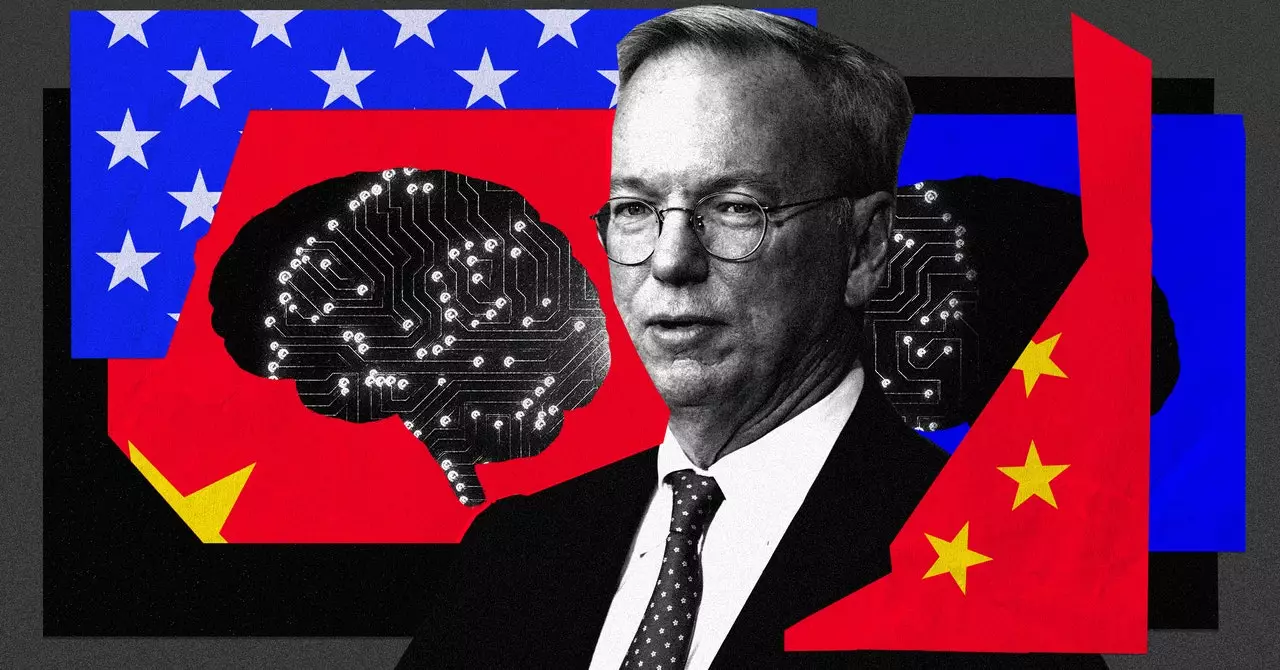In a recent revelation, it has come to light that Eric Schmidt, former Google CEO and chairman, has been involved in seeking personal connections within China’s AI industry. Despite being the chair of the US government’s National Security Commission on Artificial Intelligence (NSCAI), which warned about China’s use of AI to further an autocratic agenda, Schmidt was found to have ties to Chinese tech firms through a private foundation overseen by him and his wife. This raises serious questions about the potential conflicts of interest and the true nature of Schmidt’s involvement with China’s AI sector.
The leaked emails from 2019 show staff at Schmidt Futures, a philanthropic venture led by Eric Schmidt, asking for assistance from NSCAI employees to identify potential engagements for Schmidt in a personal capacity, specifically in the field of AI. While the exact nature of these engagements is not clear, the fact that they were seeking connections in China, a known adversary in the AI race, raises ethical concerns. It is essential to question the motives behind Schmidt’s interest in forging ties with Chinese companies, especially in light of the NSCAI’s warning about China’s ominous AI agenda.
The conflicting interests and intertwined relationships between Schmidt, a prominent figure in the American tech industry, and Chinese tech firms highlight the paradox of rivalry and interdependence in the global AI landscape. Despite the escalating tensions between the US and China over technological supremacy, there seems to be a blurred line when it comes to personal connections and business dealings. The flight records indicating Schmidt’s visit to China and his meeting with influential Chinese entrepreneurs further muddy the waters of this complex relationship.
Tax filings from 2019 reveal that the Eric and Wendy Schmidt Fund for Strategic Innovation invested nearly $17 million in a fund that ultimately flows into Hillhouse Capital, an investment firm known for its investments in Chinese tech and AI companies. Hillhouse’s collaboration with the Chinese Academy of Sciences and its funding of controversial AI startups like Yitu raise concerns about the ethical implications of Schmidt’s financial contributions. The endorsement of Hillhouse as a positive example for developing digital ecosystems, as mentioned in the tax filings, further underscores the intricate web of financial investments and strategic partnerships at play.
As the race for AI dominance intensifies on the global stage, it is crucial for individuals like Eric Schmidt to maintain transparency and accountability in their dealings, especially when it involves potential conflicts of interest. The revelations about Schmidt’s connections to China’s AI industry underline the significance of upholding ethical standards and ensuring that personal interests do not compromise national security or democratic values. Moving forward, greater transparency and oversight are needed to address the complex dynamics between influential figures in the tech industry and geopolitical rivals like China.
The intricate relationship between Eric Schmidt and China’s AI industry raises red flags about potential conflicts of interest, ethical concerns, and the need for transparency in the realm of technological innovation. As the world grapples with the implications of AI on society, it is essential for key players to uphold ethical standards and prioritize the protection of individual liberty and democratic values. Only through increased transparency and accountability can we navigate the complex landscape of global AI competition without compromising our ethical principles.


Leave a Reply
You must be logged in to post a comment.